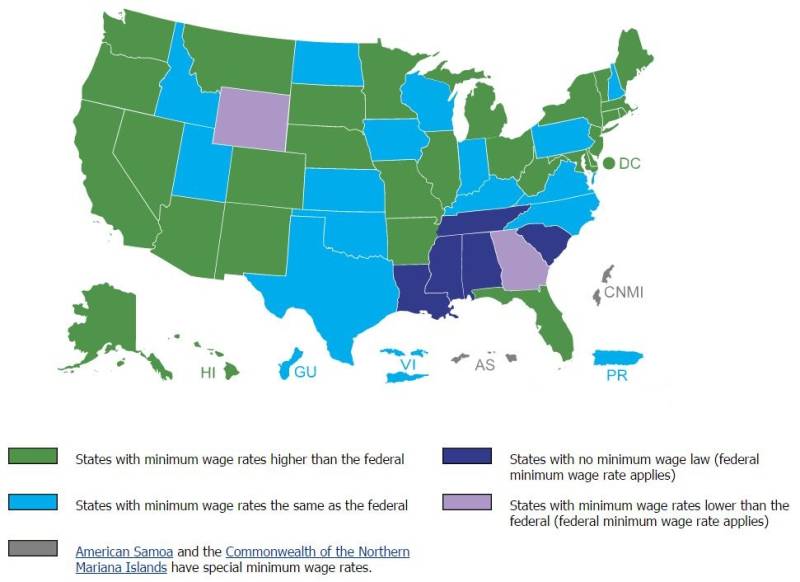Featured Media Resource: VIDEO: Do You Understand the Minimum Wage Debate? (Citizen Tools)
View a non-partisan explanation of the history and current status of the minimum wage debate.
Do Now U
Do you think the federal minimum wage should be increased? #DoNowUWage
How to Do Now
To respond to the Do Now U, you can comment below or post your response on Twitter. Just be sure to include #DoNowUWage and @KQEDedspace in your posts.
Learn More about Raising the Minimum Wage
The federal minimum wage is currently $7.25 per hour. Many people believe that it should be substantially higher and others believe that increasing it would harm small businesses and the economy.
According to Heather Boushey, Executive Director and Chief Economist at the Washington Center for Equitable Growth, raising the minimum wage is an important anti-poverty measure. A person earning the current minimum wage and working a 40-hour week makes $15,080 per year, which is barely above the poverty line for a single adult and is well below it for someone supporting children. The most recent proposal to increase the federal minimum wage would have raised it to $10.10 per hour, though it didn’t pass. More than half of the states (including the District of Columbia) already have higher minimum wages than the federal minimum wage. The District of Columbia is currently the highest at $10.50/hour. There has been discussion lately about increasing the federal minimum wage to $15 per hour, which would bring a family relying on a single wage-earner above the poverty line.
 [/media-credit]
[/media-credit]Some sources cite growing income inequality and the shrinking middle class as a reason to raise the minimum wage. The Pew Research Center defines a household as “middle-income” if it earns between 67 and 200 percent of the state’s median income, and for many years America was a predominantly middle-class nation. But by 2015, only about half of adult Americans were living in middle-income households, with 29% below that and 21% above. Income inequality adversely affects life expectancy. According to the Department of Health and Human Services, in the 1980s, wealthy Americans lived 2.8 years longer than the poor, but by the 1990s, when the income gap had widened, the rich were living 4.5 years longer than the poor. Income also plays a significant role in a person’s education, and vice versa. Simply put, the higher the education level, the higher the income. In 2009, people with professional degrees earned, on average, more than six times as much as people who did not graduate from high school: $128,000 versus $20,000. With the cost of higher education continuing to rise, a college degree is out of reach for many people from low-income families, making the gap even worse.
